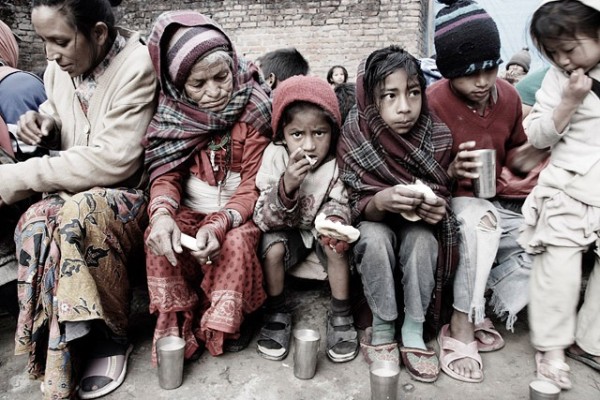Food Insecurity in Protracted Crisis @ CFS

Civil society engagement with the UN Food and Agriculture Organization (FAO) gained traction in 2013 through several processes and forums. The FAO’s Committee on World Food Security (CFS) held its 40thannual session at Rome, 7–11 October. In the wake of the food crisis, the CFS underwent a reform in 2009 to make it more effective by including a wider group of stakeholders and increasing its ability to promote polices that reduce food insecurity. To that end, FAO provides a forum for governments and civil society to discuss important global issues. On the list of discussion this year was responsible agricultural investment, bio-fuels, social protection, and food insecurity in protracted crisis.
Habitat International Coalition has joined with counterparts in the Civil Society Mechanism (CSM) to meet with the FAO’s open ended working group (OEWG) on food security in protracted crisis during the formal CFS meetings to discuss progress on the Agenda for Action (A4A).The CSM advocated including within the decision box can be summarized in the following points:
- Civil society must remain at the center of the assessment of the underlying structural causes and consequences of protracted crisis;
- All actors working in protracted crisis(including states, governments, IFIs, aid agencies, etc.) must be accountable to international human rights norms and humanitarian law, including extraterritorial obligations;
- The objective of the Agenda for Action for protracted crises should be toward long-term, sustainable solutions that support the enhancement of local food systems defined by affected communities, rather than short-term interventions that breed dependency;
- The Agenda for Action should ensure that “nutrition” is mainstreamed.
Since this October session, the OEWG has taken these points forward within the CFS, most recently in a meeting at the end of October, and within regional consultations.
In cultivating these ideas and findings ways to best operationalize them, HIC was involved in the Rights-based approaches to Food Security in Protracted Crises e-forum.
Joseph Schechla, HIC-HLRN coordinator, co-facilitated this forum along with Mauricio Rosales from the Right to Food team of FAO, Italy. This discussion yielded many interesting contributions which can be found here. This discussion is a key step into ensuring that human rights are a core component to best practices surrounding intervention methods and solutions for protracted crisis.
Work on this important issue will continue within the CFS and within other international mechanisms, such as the International Planning Committee for Food Sovereignty (IPC). Updates on the progress of this working group and ways to become involved can be found here. Staff at the HIC-MENA office can also answer any questions that you might have, at hic-mena@hic-mena.org
|